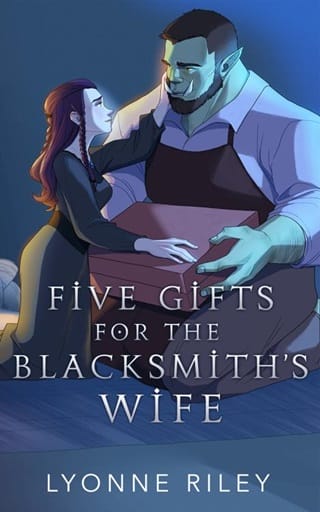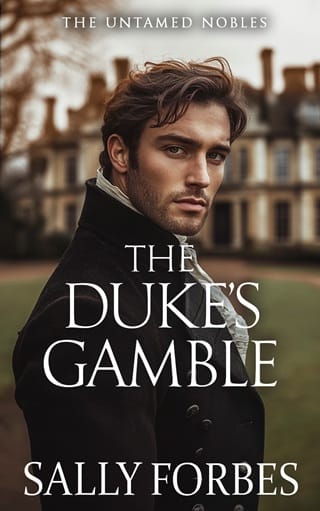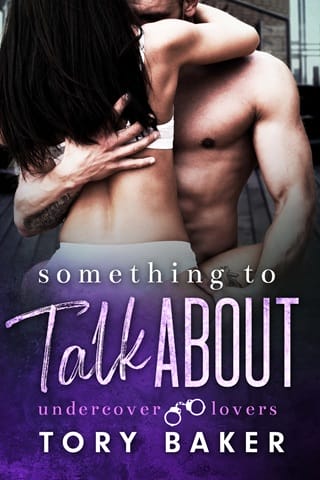Chapter Nine
NINE
SEPTEMBER 1987
After the book club meeting was over, Augusta couldn’t stop thinking about what Irving said. Was he implying that he admired her ? If so, she refused to care. His admiration—if that’s what it was—was like one of those cheap plastic trophies presented to children when their team comes in last: performative, meaningless, and hollow.
That evening, she called to order a new bathing suit from the Eddie Bauer catalogue. When she chose the racerback one-piece in poppy red, the saleswoman whistled into the phone. “That color will get you noticed, ” she said. Augusta concentrated on reading out her credit card number and banished the comment to the back of her mind. Did she want Irving to notice her? It made her uncomfortable to think about.
A few mornings later, when Irving wasn’t at the pool, she hated herself for noting his absence. Eventually, when she looked up from her book, she realized that it wasn’t only Irving who was missing. The pool was completely deserted. “Where is everybody?” she asked the snack bar attendant.
“There’s a big tennis tournament today,” Paul said. “I left my car in the clubhouse parking lot earlier, and there was already a crowd over at the courts.”
“I didn’t know about it,” said Augusta, feeling a little bit left out.
Paul shrugged and pointed to the flyer taped up next to the sandwich menu. THE ANNUAL RALLENTANDO OPEN it said, with a hand-drawn cartoon of a smiling tennis racket. “They do it every year, as soon as the U.S. Open is over. Do you play?” the young man asked.
“No,” said Augusta. “It’s not my sport. But I might go over and watch for a bit.”
“Tuna sandwich for the road?” he asked, gesturing toward the jar of mayonnaise sitting on the snack bar counter.
“Absolutely not,” she said. “And for god’s sake, Paul, keep that in the fridge. It’s ninety-five degrees outside! One of these days, you’re going to kill someone.”
There were six tennis courts at Rallentando—far fewer than at some of the bigger Florida developments, where there were separate tennis centers, clubhouses, and pro shops. Rallentando had none of those accoutrements, but it did have Bob, the beloved tennis pro, a group of die-hard doubles players, and—as Augusta was about to find out—an enthusiastic cadre of spectators.
She stopped at her apartment first, to change out of her wet bathing suit, and then walked around the back of the clubhouse, following the noise of the crowd. The organizers of the tournament had set up portable bleachers with room for two dozen alongside one of the courts. The benches were packed, so some extra café chairs had been set out by the court as well. It was almost twelve o’clock and there wasn’t even a hint of a breeze.
When she spotted Shirley at the end of the bleachers, Augusta wandered over to say hello. “How can they play in this heat?” she asked. Shirley scooted over to make room. “They’re used to it, I guess,” she said.
Augusta nodded, clapping with the others as the set they were watching came to an end. A few minutes later, the match was over—Milton Krugel and Al Koestler narrowly beating Sam Feinerman and Arnold Zilkha. The next match, Bob the pro announced, would be Isaac Zinn and Morris Prober against Harold Glantz and Irving Rivkin.
Irving sauntered onto the court wearing dark sunglasses, a white FILA shirt, and a pristine pair of white cotton shorts. Despite the somewhat showy outfit, Augusta found his confident smile alarmingly appealing. The other players wore mismatched shirts, baggy shorts, and droopy socks. Only Irving had dressed for the occasion.
“Hey, Rivkin,” shouted Isaac Zinn. “Whaddya think this is? Wimbledon?”
A few of the people in the bleachers chuckled, but Irving didn’t bat an eye. “I can’t help it if I happen to look good in white,” he said.
“You’re no Boris Becker,” shouted Shirley, causing Irving to turn in her direction. When he spotted Augusta, he removed his sunglasses and waved. Shirley nudged Augusta’s shoulder. “Somebody’s happy to see you here,” she whispered.
“Shh,” Augusta snapped. “Don’t be ridiculous.”
After a few perfunctory stretches, the men took their positions on the court. When Harold’s second serve fell into the net, Isaac Zinn let out a snort. “Ignore him, Harold,” Irving shouted. “Don’t get too comfortable out there, Zinn. You’re gonna be flat on your ass before long!”
For the next forty-five minutes, the quartet of seniors ran and lunged as if they were teenagers. As the two sides traded winning shots, the games stretched on interminably.
“Deuce,” called Morris for the third time in one game. Meanwhile, the sun pounded down on the court like a heavy metal drummer showing off on a solo. When the score finally reached five all, the men began to move more slowly. Harold stopped for a drink of water, Morris retied the laces of his sneakers, and Irving leaned his body forward to rest both hands on top of his knees. Despite the heat, his face looked pale.
“You okay there, Irv?” Isaac Zinn called.
“Sure, sure,” Irving wheezed. But even from her seat on the bleachers, Augusta could see that he didn’t look well. His face had turned a sickly white, and he wobbled unsteadily on his feet. A moment later, his knees gave way and he fell over onto the service line.
Without thinking, Augusta leapt up from the bench and ran to where Irving lay on the court. His eyes were closed, but he was still vaguely conscious, mumbling something about volleys and serves. Augusta shouted at the pro to call for an ambulance while she patted Irving’s cheeks. “Irving! Irving! Can you hear me?”
She turned to his doubles partner. “Get him some water!” By the time Harold was back with a cup from the drinking fountain, she had managed to get Irving to open his eyes. Together with Morris, she sat him up and forced him to take a few sips.
“Do you remember where you are?” she asked.
He blinked his eyes until they rested on her face. “Hi there, Goldie,” he whispered.
“Irving, do you know where you are?”
He took another sip from the cup and flashed her a woozy smile. “You look beautiful,” he said.
“Don’t be an idiot,” Augusta said. “Answer my question or I’ll tell the paramedics you had a stroke.”
“I’m sitting on the tennis court. This concrete is burning a hole in my tuchus .”
Augusta released a sigh of relief. “Good. And can you tell me your name?”
“Irving Rivkin. Are you happy now?”
“Of course I’m not happy!” Augusta blurted out. “For god’s sake, Irving, you scared me half to death!”
His smile grew broader and all of the color flooded back into his sweaty cheeks. “You were worried about me,” he said, obviously pleased with the idea.
Augusta gestured to the people on the bleachers and to all the men still standing on the court. “ Everyone was worried,” she said. “Eighty-year-old men shouldn’t play tennis.”
“I’m eighty-two.”
“I know that, Irving. I was making a point. But I’m glad that you still remember your age. I guess you didn’t have a stroke after all.”
“You know,” he said, taking another sip of water, “I don’t think I was down for more than half a minute. You must have run over here pretty quick.”
“You collapsed, ” Augusta said. “Of course I came quickly.”
“Sure,” he said. “But it’s not like everybody rushed over to help me.”
“I wanted to make sure you were still breathing.”
“What if I wasn’t?”
“Why would you say that?”
He winked at her slyly. “If I wasn’t breathing, you might have done CPR. Maybe even mouth-to-mouth resuscitation.”
Augusta took the paper cup of water from his hand and dumped what was left of it over his head.
“What’d you do that for?” He grinned.
“You looked like you needed cooling off.”
When the paramedics arrived, they took Irving’s blood pressure, helped him up off the ground, and told him they wanted to take him to the hospital for some intravenous fluids. At first he tried to brush them off, but Augusta insisted that he go. “You’re completely dehydrated,” she said. “I think you should listen to them.”
“I’ll follow behind the ambulance in my car,” said Harold. “And I’ll give you a ride home when you’re done.”
As she watched the ambulance drive away, Augusta’s eyes filled with tears. Seeing Irving that way—so pale and so weak—had produced a terrible surge of memories: she pictured him lying in his mother’s bed, barely able to open his eyes. She heard his pained, shallow breathing. She felt the fever pouring off his skin. She remembered the fear that threatened to choke her—fear she might lose her best friend, fear that she would never hear him laugh again.
Augusta concentrated on steadying her nerves. Irving had recovered then, and he was well on his way to recovering now. Stop it, she told herself. There was no need for histrionics.
So what if she’d jumped from her seat and run to his side to check his breathing? She told herself it was a perfectly normal reaction to a stressful situation. All it proved was that she was a good human being who cared about the health of others. She told herself that if it had been Harold or Morris who had fallen so abruptly to the ground, she would have behaved exactly the same way.
If Irving teased her about it later, she would be sure to tell him as much.
 Fullepub
Fullepub 



